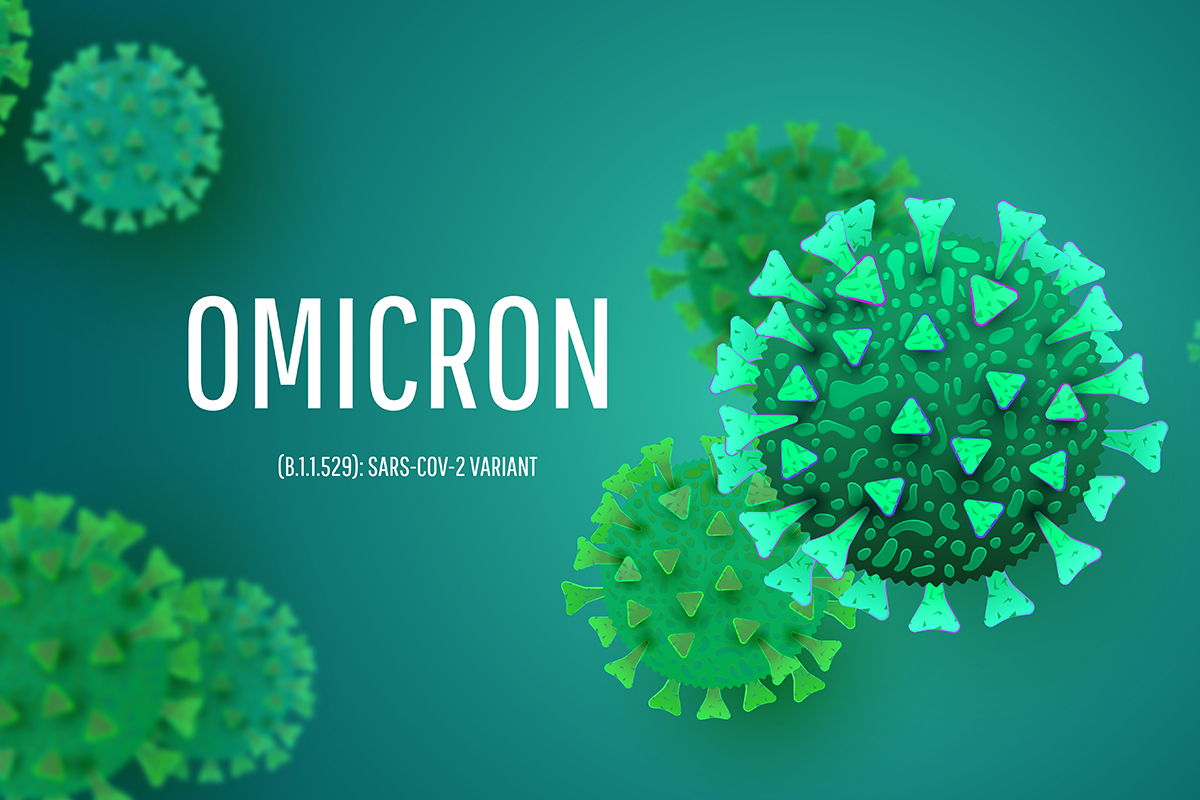The omicron variant spreads so rapidly that sometimes it feels as if resistance is futile. It’s disheartening to hear of omicron infecting people who are up-to-date on their shots and wear an N95 mask every time they leave home. Even some well-known public-health experts are getting infected. But that doesn’t mean everyone is going to get it.
What it does mean is that life is profoundly unfair. In some of us, the Covid-19 vaccines work quite robustly, even against omicron. In others, the vaccines’ effect is weaker. Chalk this up to the spectacular diversity of the human immune system, which is partly regulated by some of the most varied genes in the human body.
A recent study led by Harvard and MIT showed that about 20% of people get much poorer protection from their vaccines against omicron. They’re still better off than completely unvaccinated people, but this variability could account for some of the fully vaccinated people who’ve been hospitalized in the omicron wave.
The researchers looked at blood samples from 76 volunteers to examine the part of the immune system known as the T cells. While antibodies wane over time, T cells last longer and provide a second line of defense by identifying and killing infected cells. In vaccinated people, T cells are primed to fight SARS-CoV-2 and can usually clear the infection within a couple of days. Many experts consider them the most critical part of our defenses against omicron.
The researchers took volunteers’ T cells and pitted them against different variants of SARS-CoV-2 in test tube experiments. They found that in 4 out of 5 people, vaccination resulted in T cells that worked to clear up omicron infections just as readily as they stopped earlier variants. But in 1 out of 5 people, the vaccine-induced T cells were much less effective at clearing up omicron, even as they worked fine against the original variants.
That doesn’t mean the vaccines are pointless against omicron, as some vaccine skeptics have been arguing. It’s still a good idea to get vaccinated, because 80% of us will get good protection. Boosters are also important — in the study, they improved everyone’s ability to respond to the virus. But they didn’t help everyone equally.
“I think what our study really shows is that 80% of those people should still have a backstop with their T cells against this new variant,” said the paper’s lead author, immunologist Gaurav Gaiha, who works for the Ragon Institute, a collaboration with Harvard, MIT and Massachusetts General Hospital. The exact number might be different in a larger or more diverse sample of volunteers, but some level of variability is baked into the human immune system. Why? Because T cells take a slightly different form in each of us as the vaccine proteins interact with our unique genetics, he explained.
When our cells encounter the SARS-CoV-2 spike protein, either through an infection or a vaccine, they display parts of the viral protein on the outside; imagine a cell waving a little distress flag. That process relies on proteins called HLA. Each of us have different genes coding for HLA — these are the genes that need to be similar between organ donors and recipients to avoid rejection. Each of us will make different HLA in response to an infection or vaccine, which stick to different fragments of the viral spike protein. In other words, that little distress flag looks different in each of us.
When the process works, these distress flags trigger T cells to jump into action. A T cell that encounters an infected cell makes millions of copies of itself. These clones include so-called killer T cells, capable of finding new infected cells, boring into them and killing them — or, as Gaiha puts it, sending in a protein that signals the infected cells to kill themselves.
Omicron’s spike protein is different from the one the vaccines were targeted to fight, and that’s why we’re seeing news stories that the vaccines are “less effective.” It would be more accurate to say that some people’s vaccines will continue to offer strong protection against getting sick with omicron, but that others’ offer much less. We just don’t know who.
The diversity in our immune-regulating HLA genes is a feature, not a bug, of our immune systems. It increases the odds that a species will survive a new infectious disease, and it’s a trait we share with other vertebrates, from goldfish to goldfinches. There are even some studies showing that humans are more sexually attracted to people with the HLA genes most different from our own. Varying HLA genes might also offer a clue as to why some people develop “long Covid.”
Research like Gaiha’s could inform the design of the next generation of Covid-19 vaccines. Right now, it’s not clear whether drug companies should try to create new boosters specific to omicron, or go with a broader vaccine booster that would target different parts of the virus, including those that haven’t changed from one variant to the next. That’s what Gaiha’s lab is working on: trying to get a universal vaccine. If they succeed, it’s even more reason to hope we won’t all get Covid after all.
This article originally appeared in Bloomberg’s opinion















-20260221022942.jpg)
-20260221022827.webp)
















